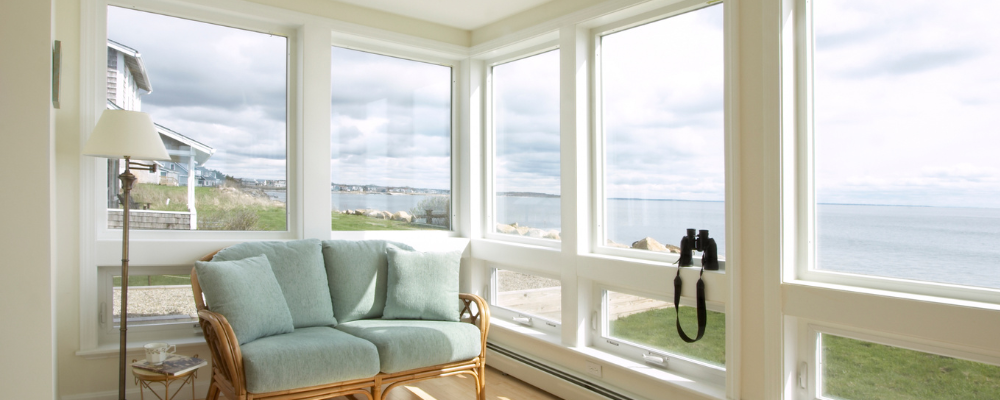The Short Answer
Buying a beach home can be a great investment, but there are many things to be aware of before you take the plunge. The benefits of buying a beach home in one of many sought-after beach towns are: a good return on investment, high demand for these homes, various tax benefits, property value appreciation, portfolio diversification and a desirable vacation place.
The challenges that come with buying a beach home include the high operational expenses, large upfront costs, seasonal demand, weather-related risks and zoning constraints. Making a success of a beach home purchase involves buying in the most desirable beach towns with the highest demand.
Jump To
Pros Of Buying A Beach House
Buying a beach house can be an excellent source of income, provide a good return on investment and give homeowners a great getaway spot. Here are more details on the advantages of buying a beach house.
- Good Return On Investment: While a beach house investment takes time to begin generating a good income and requires significant investment, it can provide a great return on investment over time.
- High Demand: Beachfront properties typically have a high demand, and travelers are likely to fork out a premium for these properties. Houses on the beach are often located in popular vacation destinations, so they are typically booked out during peak seasons.
- Desirable Vacation Place: A beach house gives the owners a chance to use it as a place to vacation. This is a huge benefit which can be great for family vacations and a fun getaway.
- Tax Benefits: Depending on how the property is being used, there may be tax benefits to having a beach house. These can include mortgage interest rate deductions and depreciation on rental properties.
- Diversify Portfolio: Adding a beach house to your investment portfolio is a good way to diversify your portfolio and create a different source of income.
- Property Value Appreciation: Properties that are on the coast, in desirable locations, typically appreciate in value over time significantly. So, for long-term wealth building this can be a great option.

Cons Of Buying A Beach House
While buying a beach house may sound like a great investment, there are also drawbacks to be aware of, before making this decision.
- Operational Expenses: Beach houses require ongoing operational expenses which include property maintenance, insurance, and sometimes extra costs for weather-related wear and tear.
- High Upfront Costs: Purchasing a beach house requires a significant amount of capital upfront. There are also closing costs and potential property upgrades or renovations that may need to be done. A buyer will need to find the capital for this, in the form of a loan or from their own pocket.
- Weather-related Risks: Properties located on the coast may be susceptible to weather-related risks like flooding, erosion, rust and other problems that will require additional insurance, repairs or other expenses.
- Seasonal Demand: While beach houses can earn high rental income, they are often occupied during peak season for the most part. Which means that they are not occupied for large portions of the year, and this can limit the amount of rental income generated.
- Zoning Regulations: Beach houses are often subject to the stringent zoning constraints and regulations implemented on coastal areas. This can limit the upgrades you can do to the property and the uses of the property.

The Economics Of Buying A Beach House
Before taking the plunge and investing in a beach house, you should consider the economics that come with an investment of this nature.
Short Term Rental Income
A beach house can provide a significant amount of rental income. Vacation rental properties such as beach houses, can provide a higher rental rate than other vacation rental properties. Beach homes are often sought after, and if you buy a property in a desirable coastal location, vacation-goers will be likely to pay a premium for it.
It’s important to analyze the rental potential of a beach house, along with the demand. Beach houses often experience a high demand, but only in the right season. Which means that it’s important to work out whether the short-term rental income you receive from a beach house will cover the operating costs of the house for the entire year.
Costs Of Owning Beachfront Property
Purchasing a dream beach house can be expensive, so make sure to factor in the purchase price, closing costs and any upgrades that will be made. Along with this, factor in the operational costs, maintenance, and potential property management expenses. The goal is not just to acquire the property but to ensure that it remains profitable.
Costs to consider with beachfront property ownership are:
- Maintenance and Repairs – these may cost more due to the effect of saltwater and certain weather conditions that occur on the coast.
- Insurance – specialized insurance may be required to cover risks like hurricanes, flooding and other occurrences.
- Property Taxes – these are an ongoing expense, and they may be higher for beachfront properties, depending on the location and value.
- Utilities – these will be the regular utility costs, as well as additional costs for seawall maintenance, landscaping, and specialized services.
- Property Management – if you decide to hire a property management company to take care of your investment property, this will be an extra cost to factor in.
- HOA – if the property is part of a HomeOwner’s Association, there will be fees and assessment costs due, for any community maintenance and shared amenities.
- Landscaping – outdoor costs to consider include landscaping and maintenance of the property’s aesthetic, which include the prevention of erosion.

How To Finance A Beach House Investment
Once you’ve considered all the ins and outs of buying a beach house and chosen the right property for your investment goals, it’s time to look at how to finance it.
What you’ll need
First things first, you’ll need to prepare the right documents and make sure that you’ve got the appropriate statements and proof that will be required to get financing. This can vary, depending on the lender. Borrowers who have traditional jobs would usually need to provide recent pay stubs, along with W-2 forms for 2 years as their proof of income and employment.
Proof of your income and employment may be required if you choose to use a traditional lender. If you are self-employed this means 2 years’ worth of personal tax returns, business tax returns, a business balance sheet, and a year-to-date profit and loss statement.
Lenders may also require statements from the bank and your investment accounts, as well as a list of your monthly debts and any recent mortgage statements if you own a primary residence.
How to qualify
Each lender will have their own qualification criteria for loan approval, and this will dictate your next step. Qualification for a loan, when buying a beach house, typically revolves around your credit score, debt-to-income (DTI) ratio and your assets. If it is an asset-based loan, the loan will be based on the profitability of the asset itself, in other words the beach house.
Financing options
- Hard money lenders: Loans provided by hard money lenders are often a good option for purchasing investment properties, including rental properties. You’ll be able to get fast funding, with flexible loan terms, and less stringent lending criteria.
- Private lenders: Loans that are provided by private lenders can also be extremely flexible, and these are often used for purposes such as buying a beach house.
- Seller financing: While this isn’t a commonly used method, seller financing can be used to purchase a beach house. This requires the seller to act as a lender and allow the buyer to pay the property off over time.
- Traditional lenders: A traditional loan or conventional mortgage can be used for buying a beach house however this depends on the usage of the property. If it is to be used as a short-term rental property there are certain rules around this, that will enable you to qualify for a traditional loan.
- Home equity: For those who already have equity in a home, this can be used to fund the purchase of a beach house through a home equity loan. This means that a new loan can be taken out in place of the original mortgage, with a higher principal amount, and the equity can be taken out as cash. This is a cash-out refinance.
- Real estate crowdfunding: On crowdfunding platforms, you can pitch your project idea, and get funding from various investors who pool their funds to assist with the purchase. They will in turn require a percentage of the rental income or another way of compensating.
Choosing a lender
Selecting the right lender for a beach house purchase is a crucial step in ensuring a smooth and successful transaction. Consider the following steps to choose the right lender:
- Get clarity on your needs: Your financial needs are unique to your situation and form the biggest part of your decision making in this regard. Make sure to clearly define your needs including the loan amounts, terms, and any other requirements.
- Research specialized lenders: Do your homework to find specialized lenders who will finance beachfront properties. This is important because coastal real estate can be a valuable asset, but it can come with its own challenges.
- Check lender terms and rates: Compare various lender’s interest rates and terms, this will help you make a more informed decision on which lender will best suit your needs.
- Evaluate loan products: Assess the variety of loan programs offered by each lender. Look for options that align with your financial goals and provide flexibility in repayment.
- Assess customer service: The service you receive from a lender is vital to the process. Make sure that the lender you choose can guide you through the process and address your concerns promptly.
- Check pre-approval process: A fast and streamlined pre-approval process can help you beat the competition and secure your proof of funds before other investors. In the competitive world of real estate investing this can be a major advantage.

Should You Investment In Beachfront Properties?
Buying a beach house can be a lucrative investment, however there are risks to consider as well. If you’re trying to work out whether buying a beach house is the right move for your investment portfolio, consider this…
- Location and Demand: If you find a beachfront property in one of the most sought-after beach towns with a high demand, you are likely to generate a steady income from it. In other words, buying in a popular beach town is key.
- Portfolio Diversifying: Beachfront properties can be a great way to diversify your portfolio, if you’re looking to add an extra income source and spread the risk across different asset classes.
- Initial Costs: The upfront costs of buying a beach house are high, so this is an important factor to consider and plan for. These include the purchase price, closing costs, insurance costs and any renovations that the property may need.
- Property Management: If you cannot manage the property yourself, there are property management fees to consider. These property management fees need to be factored into your overall profit on beach homes.
- Market Volatility: When it comes to real estate investing, market volatility is always a factor, however vacation homes are particularly susceptible to this. You’ll need to stay on top of any market changes and be vigilant to how this will impact your investment property.



